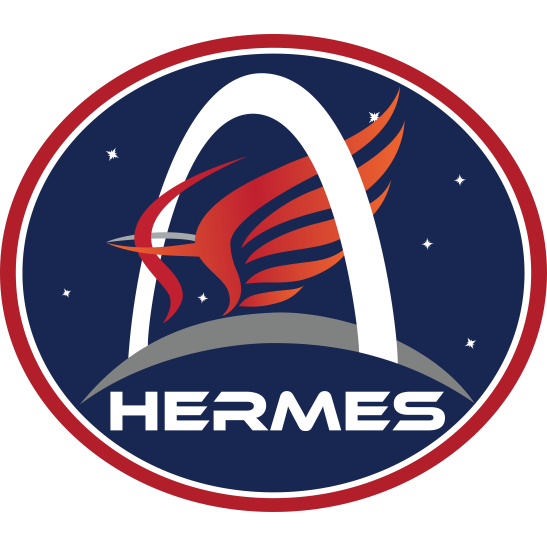HermesData¶
- class hermes_core.timedata.HermesData(timeseries: TimeSeries, support: dict[Quantity | NDData] | None = None, spectra: NDCollection | None = None, meta: dict | None = None)[source]¶
Bases:
objectA generic object for loading, storing, and manipulating HERMES time series data.
- Parameters:
timeseries (
astropy.timeseries.TimeSeries) – The time series of data. Columns must beQuantityarrays.support (
Optional[dict[Union[astropy.units.Quantity, astropy.nddata.NDData]]]) – Support data arrays which do not vary with time (i.e. Non-Record-Varying data).spectra (
Optional[ndcube.NDCollection]) – One or morendcube.NDCubeobjects containing spectral or higher-dimensional timeseries data.meta (
Optional[dict]) – The metadata describing the time series in an ISTP-compliant format.
Examples
>>> import numpy as np >>> import astropy.units as u >>> from astropy.timeseries import TimeSeries >>> from ndcube import NDCube, NDCollection >>> from astropy.wcs import WCS >>> from astropy.nddata import NDData >>> from hermes_core.timedata import HermesData >>> # Create a TimeSeries structure >>> data = u.Quantity([1, 2, 3, 4], "gauss", dtype=np.uint16) >>> ts = TimeSeries(time_start="2016-03-22T12:30:31", time_delta=3 * u.s, data={"Bx": data}) >>> # Create a Spectra structure >>> spectra = NDCollection( ... [ ... ( ... "test_spectra", ... NDCube( ... data=np.random.random(size=(4, 10)), ... wcs=WCS(naxis=2), ... meta={"CATDESC": "Test Spectra Variable"}, ... unit="eV", ... ), ... ) ... ] ... ) >>> # Create a Support Structure >>> support_data = { ... "data_mask": NDData(data=np.eye(100, 100, dtype=np.uint16)) ... } >>> # Create Global Metadata Attributes >>> input_attrs = HermesData.global_attribute_template("eea", "l1", "1.0.0") >>> # Create HermesData Object >>> hermes_data = HermesData(timeseries=ts, support=support_data, spectra=spectra, meta=input_attrs)
- Raises:
ValueError – If the number of columns is less than 2 or the required ‘time’ column is missing.:
TypeError – If any column, excluding ‘time’, is not an
astropy.units.Quantityobject with units.:ValueError – If the elements of a
TimeSeriescolumn are multidimensional:TypeError – If any
supoportdata elements are not typeastropy.nddata.NDData:
References
Attributes Summary
(
dict) Adictcontaining each oftimeseriesandsupport.(
collections.OrderedDict) Global metadata associated with the measurement data.(
ndcube.NDCollection]) ANDCollectionobject containing high-dimensional spectra data.(
dict[Union[astropy.units.Quantity, astropy.nddata.NDData]]) Adictcontaining one or more non-time-varying support variables.(
astropy.time.Time) The times of the measurements.(
tuple) The start and end times of the times.(
astropy.timeseries.TimeSeries) ATimeSeriesrepresenting one or more measurements as a function of time.Methods Summary
add_measurement(measure_name, data[, meta])Add a new time-varying scalar measurement (column).
add_spectra(name, data[, meta])Add a new time-varying vector measurement.
add_support(name, data[, meta])Add a new non-time-varying data array.
append(timeseries)Add additional measurements to an existing column.
global_attribute_template([instr_name, ...])Function to generate a template of the required ISTP-compliant global attributes.
load(file_path)Load data from a file.
Function to generate a template of the required measurement attributes.
plot([axes, columns, subplots])Plot the measurement data.
remove(measure_name)Remove an existing measurement or support data array.
save([output_path, overwrite])Save the data to a HERMES CDF file.
Attributes Documentation
- data¶
(
dict) Adictcontaining each oftimeseriesandsupport.
- meta¶
(
collections.OrderedDict) Global metadata associated with the measurement data.
- spectra¶
(
ndcube.NDCollection]) ANDCollectionobject containing high-dimensional spectra data.
- support¶
(
dict[Union[astropy.units.Quantity, astropy.nddata.NDData]]) Adictcontaining one or more non-time-varying support variables.
- time¶
(
astropy.time.Time) The times of the measurements.
- timeseries¶
(
astropy.timeseries.TimeSeries) ATimeSeriesrepresenting one or more measurements as a function of time.
Methods Documentation
- add_measurement(measure_name: str, data: Quantity, meta: dict | None = None)[source]¶
Add a new time-varying scalar measurement (column).
- Parameters:
measure_name (
str) – Name of the measurement to add.data (
astropy.units.Quantity) – The data to add. Must have the same time stamps as the existing data.meta (
dict, optional) – The metadata associated with the measurement.
- Raises:
TypeError – If var_data is not of type Quantity.:
ValueError – If data has more than one dimension:
- add_spectra(name: str, data: NDCube, meta: dict | None = None)[source]¶
Add a new time-varying vector measurement. This include higher-dimensional time-varying data.
- Parameters:
name (
str) – Name of the measurement to add.data (
ndcube.NDCube) – The data to add. Must have the same time stamps as the existing data.meta (
dict, optional) – The metadata associated with the measurement.
- Raises:
TypeError – If var_data is not of type NDCube.:
- add_support(name: str, data: Quantity | NDData, meta: dict | None = None)[source]¶
Add a new non-time-varying data array.
- append(timeseries: TimeSeries)[source]¶
Add additional measurements to an existing column.
- Parameters:
timeseries (
astropy.timeseries.TimeSeries) – The data to be appended (rows) as aTimeSeriesobject.
- static global_attribute_template(instr_name: str = '', data_level: str = '', version: str = '') OrderedDict[source]¶
Function to generate a template of the required ISTP-compliant global attributes.
- Parameters:
- Returns:
template (
collections.OrderedDict) – A template for required global attributes.
- classmethod load(file_path: str)[source]¶
Load data from a file.
- Parameters:
file_path (
str) – A fully specificed file path.- Returns:
data (
HermesData) – AHermesDataobject containing the loaded data.- Raises:
ValueError – If the file type is not recognized as a file type that can be loaded.:
- static measurement_attribute_template() OrderedDict[source]¶
Function to generate a template of the required measurement attributes.
- Returns:
template (
collections.OrderedDict) – A template for required variable attributes that must be provided.
- plot(axes=None, columns=None, subplots=True, **plot_args)[source]¶
Plot the measurement data.
- Parameters:
axes (
Axes, optional) – If provided the image will be plotted on the given axes. Defaults toNoneand creates a new axis.columns (
list[str], optional) – If provided, only plot the specified measurements otherwise try to plot them all.subplots (
bool) – If set, all columns are plotted in their own plot panel.**plot_args (
dict, optional) – Additional plot keyword arguments that are handed toAxes.
- Returns:
Axes– The plot axes.
- remove(measure_name: str)[source]¶
Remove an existing measurement or support data array.
- Parameters:
measure_name (
str) – Name of the variable to remove.
